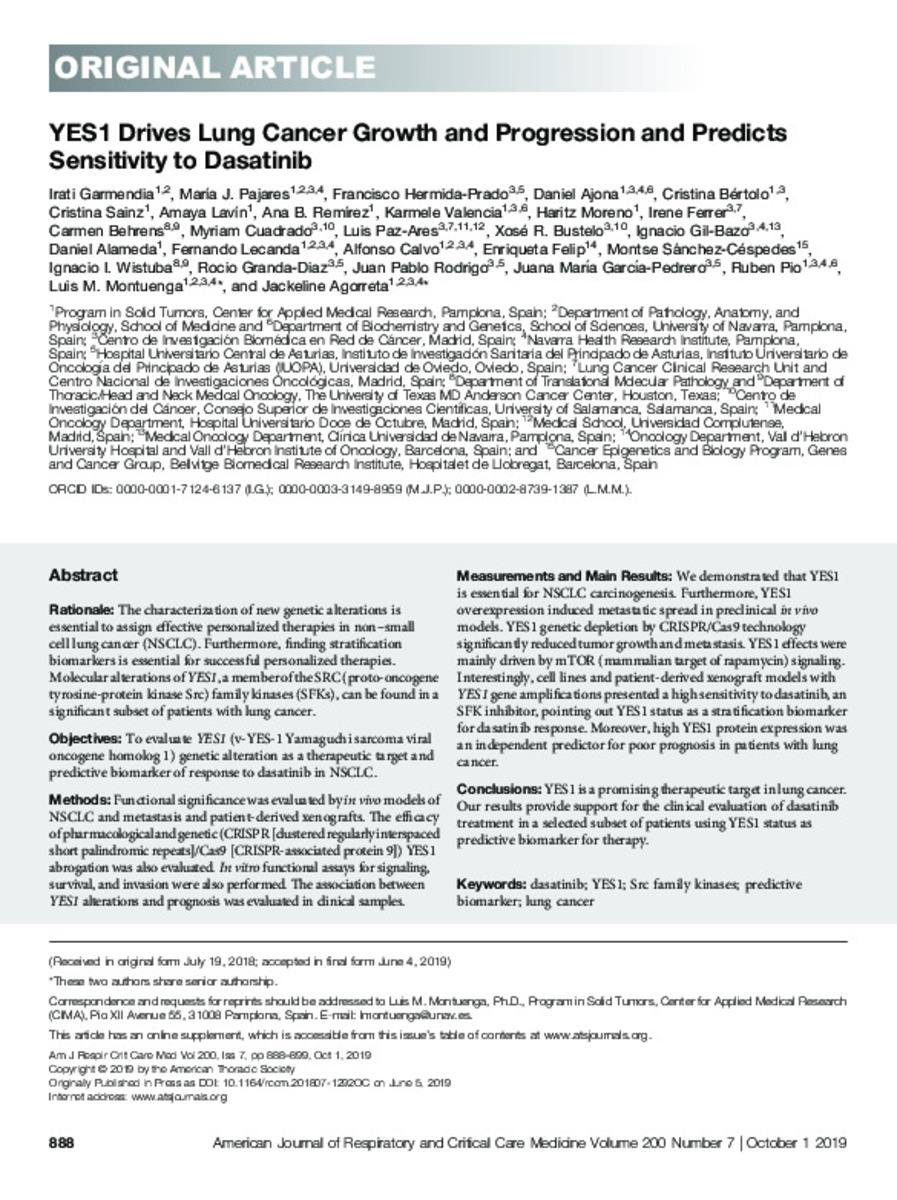YES1 drives lung cancer growth and progression and predicts sensitivity to dasatinib
Palabras clave :
Dasatinib
YES1
Src family kinases
Redictive biomarker
Lung cancer
Fecha de publicación :
2019
Editorial :
American Thoracic Society
Cita:
Garmendia, I. (Irati); Pajares, M.J. (María José); Hermida-Prado, F. (Francisco); et al. "YES1 drives lung cancer growth and progression and predicts sensitivity to dasatinib". American Journal of Respiratory and Critical Care Medicine. 200 (7), 2019, 888 - 899
Aparece en las colecciones:
Estadísticas e impacto
0 citas en

0 citas en

Los ítems de Dadun están protegidos por copyright, con todos los derechos reservados, a menos que se indique lo contrario.










